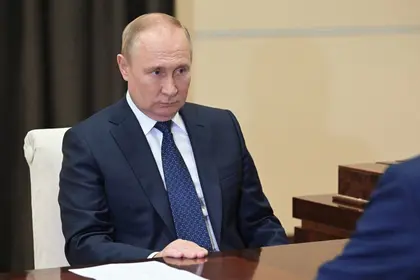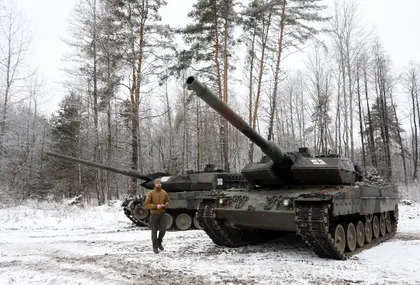On July 21, the European Union (EU) officially introduced its seventh package of sanctions against Russian President Vladimir Putin’s regime, covering 57 individuals and legal entities.
Among them are:
JOIN US ON TELEGRAM
Follow our coverage of the war on the @Kyivpost_official.
- Sergey Sobyanin, Mayor of Moscow;
- Andrey Belousov, First Deputy Prime Minister of Russia;
- Sergey Chemezov, the CEO of Rostec Corporation, a state-owned defense conglomerate;
- Sergei Tsivilev, Governor of the Kemerovo Region – Kuzbass;
- Maria Lvova-Belova, the Presidential Commissioner for Children’s Rights in Russia;
- Vladimir Mashkov, actor;
- Sergey Bezrukov, actor;
- Adam Delimkhanov is a Russian politician of Chechen ethnicity, who has been member of the Russian State Duma since 2007;
- Yury Chaika former Russian Prosecutor General,
- the Night Wolves Motorcycle Club is a Russian motorcycle club and its leader Alexander Zaldastanov;
- the All-Russia “Young Army” National Military Patriotic Social Movement Association;
- Rossotrudnichestvo; and
- Sberbank.
The fresh sanctions include a ban on transactions using Russian gold and an expanded list of goods that might otherwise contribute to Russia’s military and technological improvement.
At the same time, the EU decided to suppress from sanctions, transactions with state-owned companies that export wheat and fertilizers, as well as transport of oil to third countries. This decision is explained by the need to ensure food and energy security in the world.
On June 26 and a result of the pain of sanctions, Russia missed the deadline for paying external debts and found itself in a state of technical default. The country will no longer be able to attract loans and investments and its creditors will theoretically be able to apply to recover the assets of the aggressor country through the courts.
On June 7, the grace period expired for the Russian government to pay 100 million dollars of interest on Eurobonds. The last time the country could not pay its creditors was in 1998, although that was more a problem of internal debts.
Sanctions to date have hit hard on Russian ferrous metallurgists (shares collapsed by 40-50 percent). Moreover, ferrous metallurgy enterprises could reduce production volumes compared to the previous year by 11 million tons (or by 15 percent) taking it down to 59.6 million tons. This forecast was made on June 14 by the NLMK group, one of the largest steel producers in Russia.

Russian Air Attack Kills Nine in Sumy Region
Meanwhile, the production of automobiles and railway structures are being scaled back and industrial construction has practically stopped.
In May 2022, the production of passenger cars in Russia decreased by almost 97 percent compared to the same period last year. The Russian State Statistics Service reported that in the first five months of 2022, 268,000 cars rolled off the assembly line in Russia, which is 56 percent lower than in January-May 2021.
Russian Minister of Economy, Maxim Reshetnikov recently stated: “The government is left without half its gold and foreign exchange reserves, the aircraft fleet has to be dismantled for spare parts, and imports have halved. By mid-June, supplies from abroad were 40 percent lower” he said.
Isolationism
According to Russian newsletter Medusa and sources close to the Kremlin, President Vladimir Putin does not wish to hear anything about the difficulties and believes the country can succeed separated from the rest of the world.
Putin effectively wants to recreate the auto industry from a technological zero and to develop capacity to produce electronics. The government plans to build 100 aircraft per year, as in the days of the USSR.
According to EU High Representative for Foreign Affairs and Security Policy Joseph Borrell, Russia depends on imports of high-tech products from Europe, which account for 45% of supplies. The U.S accounts for 21 percent and China accounts for just 11%.
“Of course, Russia may try to limit the effect of sanctions by substituting imports for domestic production. However, for high-tech products, import substitution is much more difficult,” Borrell explained.
According to western economists, sanctions are a tool that typically hit hard in the medium to longer term, thus one can expect to see a slow erosion of Russia’s economy.
In a year or two, sanctions will have noticeable consequences for the Russian economy, by cutting of modern technology development.
You can also highlight the text and press Ctrl + Enter










